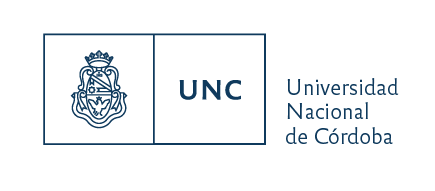| dc.contributor.author | Gaido, Daniel | |
| dc.date.accessioned | 2023-08-25T14:59:59Z | |
| dc.date.available | 2023-08-25T14:59:59Z | |
| dc.date.issued | 2023-06-23 | |
| dc.identifier.citation | Gaido, D. (2023). Marxism and Homosexual Liberation: Magnus Hirschfeld’s Relations with the Social-Democratic Party of Germany and the Early Soviet Government. Historical Materialism (published online ahead of print 2023). https://doi.org/10.1163/1569206x-bja10006 | es |
| dc.identifier.issn | 1465-4466 | |
| dc.identifier.uri | http://hdl.handle.net/11086/548590 | |
| dc.identifier.uri | https://brill.com/view/journals/hima/aop/article-10.1163-1569206x-bja10006/article-10.1163-1569206x-bja10006.xml | |
| dc.description.abstract | The decriminalisation of homosexuality was a measure originally adopted by the bourgeois revolutions, which was abandoned by the bourgeois parties as the rise of the labour movement led the bourgeoisie to seek a compromise with landlords, clergy and monarchy in different countries. The demand to decriminalise homosexuality was therefore taken over by the Marxist workers’ parties, such as the Social-Democratic Party of Germany before the First World War and the Bolshevik Party in Russia after the Revolution of October 1917. This article outlines the cooperation between the Scientific-Humanitarian Committee led by Magnus Hirschfeld and Social Democracy to decriminalise homosexuality by removing Paragraph 175 of the German Penal Code before the First World War. It also describes the decriminalisation of homosexuality in Russia under Lenin, with the adoption of the first Soviet Penal Code in June 1922, and Magnus Hirschfeld’s relations with prominent figures of the early Soviet government such as N.A. Semashko, the first People’s Commissar of Public Health, and Anatoly Lunacharsky, the first People’s Commissar for Education. Those ties ceased with the Nazis’ rise to power in January 1933, which resulted in the destruction of the institutions created by Hirschfeld, such as the Institute for Sexual Science and the World League for Sexual Reform, while in the Soviet Union itself Stalin recriminalised homosexuality in March 1934, shortly before Hirschfeld’s death, linking homosexuality and fascism. | es |
| dc.language.iso | eng | es |
| dc.rights | Attribution-NonCommercial-NoDerivatives 4.0 Internacional | * |
| dc.rights.uri | http://creativecommons.org/licenses/by-nc-nd/4.0/ | * |
| dc.subject | Marxism | es |
| dc.subject | Homosexuality | es |
| dc.subject | Social-Democratic Party of Germany | es |
| dc.subject | Bolshevik Party | es |
| dc.subject | Marxismo | es |
| dc.subject | Homosexualidad | es |
| dc.subject | Partido Socialdemócrata de Alemania | es |
| dc.subject | Partido Bolchevique | es |
| dc.title | Marxism and Homosexual Liberation | es |
| dc.title.alternative | Magnus Hirschfeld’s Relations with the Social-Democratic Party of Germany and the Early Soviet Government | es |
| dc.type | article | es |
| dc.description.version | info:eu-repo/semantics/publishedVersion | es |
| dc.description.fil | Fil: Gaido, Daniel. Universidad Nacional de Córdoba. Facultad de Ciencias Sociales, Argentina. | es |
| dc.description.fil | Fil: Gaido, Daniel. Universidad Nacional de Córdoba. Facultad de Filosofía y Humanidades. Escuela de Historia, Argentina. | es |
| dc.description.fil | Fil: Gaido, Daniel. Consejo Nacional de Investigaciones Científicas y Técnicas. Centro de Investigaciones y Estudios sobre Cultura y Sociedad, Argentina. | es |
| dc.journal.city | Leiden | es |
| dc.journal.country | Países Bajos | es |
| dc.journal.editorial | Koninklijke Brill NV | es |
| dc.journal.pagination | 1-100 | es |
| dc.journal.title | Historical Materialism. Research in Critical Marxist Theory | es |
| dc.journal.volume | published online ahead of print 2023 | es |
| dc.identifier.eissn | 1569-206X | |
| dc.contributor.orcid | https://orcid.org/0000-0001-9660-4834 | es |





